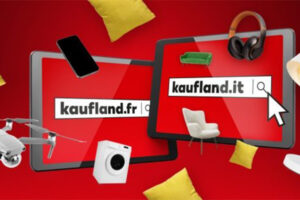ACROSS: IKEA Centres was very active last year. Which retail properties were opened during that time?
GERARD GROENER: We opened a number of centers over the last 12 months. In Portugal we opened a center in the city of Loulè in the Algarve together with a factory outlet. A beautiful combination of an IKEA store, a shopping center, entertainment square, and a factory outlet reflecting all needs of a very diverse population in the area. We opened a factory outlet in Zagreb with the same partner, again of course, connected to an IKEA store. In Poland we opened a new center in Lublin together with IKEA.
ACROSS: IKEA Centres has a strong presence on the Russian market. Which projects did you launch there?
GROENER: We started with the extension of our MEGA Adygea-Kuban and a large-scale re-commercialization program in other MEGAs throughout Russia. Our Moscow centers–Khimki, Teply Stan, and Belaya Dacha–that are too small to accommodate the 30 million visitors we see annually in each of them, lead the way in this upgrade, combined with extensions of the offer.
Another important project that we have started to implement in some of our Russian centers is the one called “MEGA Parks”. Close to the centers and directly connected with them we are developing big areas, from 90,000 sq m up to two hectares, for rest and leisure that includes green zones, F&B services, event areas, kids and sports playgrounds, workout zones with fitness and gymnastic equipment and different multifunctional grounds for street basketball, football, skate. It’s a free area in which both guests and visitors but also residents of the closest districts can meet, hang out and rest.
ACROSS: What makes “MEGA Parks” special?
GROENER: MEGA Park is much more than a simple space, it includes a big list of events, festivals and other different initiatives that in most cases are done in close collaboration with tenants, local communities, and local authorities.
We are committed to our vision to create a better everyday life for the many people and do that within our IKEA culture and values. Moscow and St. Petersburg are mega-cities in Europe and we see many opportunities to serve this community and its people. With our persistence in offering excellent quality home furnishing at a low price we can make a difference.
ACROSS: In what way have you developed your portfolio in terms of refurbishment?
GROENER: Next to the Russian investments as explained above we are in a turnaround phase. That turnaround will result in changing traditional shopping centers into places that fit naturally into the community it serves. This means that we want to offer much more than instore retail. We operate from a demand perspective and have deep research into what a community is about. Those insights are leading to a customer proposition which is in itself the commercial brief for a design and development process. In doing this we can of course build upon IKEA’s long-standing experience in these markets and communities and the relevant research methods from generic social economic data to home visits.
ACROSS: Not just your portfolio but also your company’s name is changing. What is the new name and why did you change it?
GROENER: The name change in IKEA Centres is part of a global change in the IKEA Group, which is now renamed to Ingka Group. Over the years, Ingka Group has grown successfully by adding several business lines adjacent to the retail business. Now the IKEA brand will only refer to Ingka Group’s core retail business, and other Ingka businesses will have their own identity.
The three businesses within the Ingka Group are IKEA Retail, which operates 367 IKEA stores that each year receive 800 million visitors, with two billion visits to IKEA.com; Ingka Centres, which owns 45 shopping centers in China, Europe, and Russia and welcomes 480 million visitors each year; and Ingka Investments whose main mission is to protect the financial independence of the group in the long term by investing in strategic businesses outside the pure retail sector.
Despite the change, the essence that guides the entire Ingka Group and each of our employees on a day-to-day basis remains the same. We continue to share the same dream, the same vision: to create a better everyday life for the many people, and the same values as well as our humanistic approach to business, which is something left to us by our founder Ingvar Kamprad, whose first name and surname lead us to the name Ingka.
ACROSS: What changes for your tenants and customers?
GROENER: We will keep servicing all the people in our communities to the max of our abilities. The name change has no effect on that.
ACROSS: In which way does the renaming affect those of your projects that are currently in development or under construction?
GROENER: Those projects are aimed to serve people and their communities. That will be the case going forward. While we change the company’s name, we will keep operating through our consumer brands: Livat in China, MEGA in Russia, and the current different brands that are operating in our European markets.
ACROSS: How are you approaching and cultivating the relationships with the different communities and neighborhoods around your meeting places?
GROENER: We see the communities as a fundamental part of our new developments. We like to think beyond the pure and traditional relation between shopping center and customers. We see people, citizens instead of just customers. People that have needs and desires but also bring us a fantastic opportunity to partner with them and develop spaces that can be more relevant and can help them to have a happier everyday life. This comes quite naturally to us, sharing the IKEA humanistic approach to the business, and we have some good examples that have been implemented in the last year.
The first things that come to mind are initiatives like the MEGA Parks in our Russian portfolio, community spaces around different hobbies and interests in different centers, co-working spaces for young entrepreneurs, local art galleries in which local artists can show and sell their works, cultural and educational spaces, activities and events done in collaboration with local clubs and associations to mention just some of them. All these initiatives are bringing lots of visitors to our centers but they are helping us to be any other neighbor in the communities that will also help us to have a more sustainable business in each location.
ACROSS: How do you approach the increasing trend of digitalization?
GROENER: We embrace this trend as it will allow us to be much more in touch and closer to our customers. It will widen the range of services we can offer, many of those in close collaboration with the IKEA stores. It will allow people to connect to the meeting place and the store at any time from any location, with questions, remarks, requests or just to get inspired and dream away.
ACROSS: You launched a “digital mall” in China. Could you tell us a little more about this concept?
GROENER: In Wuxi we launched the digital mall roughly a year ago. Don’t get this wrong, it’s not the Wuxi Livat presented in a digital form, but a digitalization of the services we offer our customers.
The project comes in four phases and starts with a loyalty program in which we are introducing different means of collecting customer data, such as through Wi-Fi, WeChat, POS and others. Customers who are registered as LIVAT Family Members can use these functions on the app to collect points on their spending, use gift coupons with points, enjoy special offers from tenants, use mall navigation, buy cinema tickets, register member activities and much more. Smart is installed by tenants to collect customer consumption data and issue coupons automatically.
At the soft launch, 40.000 people signed up and we are currently at over a 100.000 people in the loyalty program plus the majority of our tenants in the center. We are also learning from earlier phases now implemented and we are extending the program to the two other existing centres in China: Beijing and Wuhan.
ACROSS: Mapic is always a great opportunity to take a look around. What is your take on the state of the current European retail real estate market in general?
GROENER: I can see many shifts taking place. The most significant one is visible in both city centers as well as in malls and that is F&B replacing traditional retail at a rapid pace. Fashion and electronics are adapting to their beliefs in how to service the customer and stay relevant and I think that’s where the future lies. Adaptability will be key going forward and will separate the winners, showing positive visitation numbers, from the ones that fall behind and may lose relevance for a longer time.
Sign up for our ACROSS Newsletter. Subscribe to ACROSS Magazine.





